 ACADEMY OF MARXISM CHINESE ACADEMY OF SOCIAL SCIENCES
ACADEMY OF MARXISM CHINESE ACADEMY OF SOCIAL SCIENCES
 ACADEMY OF MARXISM CHINESE ACADEMY OF SOCIAL SCIENCES
ACADEMY OF MARXISM CHINESE ACADEMY OF SOCIAL SCIENCES
 ACADEMY OF MARXISM CHINESE ACADEMY OF SOCIAL SCIENCES
ACADEMY OF MARXISM CHINESE ACADEMY OF SOCIAL SCIENCES
From November 6 to November 10, 2024, Chen Zhigang, Party Secretary of the Discipline Inspection Committee and Vice President of the Academy of Marxism, Chinese Academy of Social Sciences (CASS), led a delegation to visit Laos for academic exchange. The members of the delegation were Wang Zhongbao, researcher and director of the editorial office of International Critical Thought; He Qin, researcher and director of the Research Unit of Contemporary World Socialism, Department of International Communist Movement; Xia Yipu, associate researcher of the Unit of Basic Theory Research, Department of Xi Jinping Thought on Socialism with Chinese Characteristics for a New Era; Chen Yongsheng, associate researcher of the Research Unit of Marxist Philosophy, Department of the Basic Principles of Marxism; and Yang Binbin, associate researcher of the Research Unit of the Theoretical System of Socialism with Chinese Characteristics, Department of the Sinicization of Marxism.
On the morning of November 7, the delegation first visited the National University of Laos (NUL), met Thongsouk Keomany, Vice President of NUL, and had a discussion with experts and scholars from the Center for Chinese Studies, the Faculty of Social Sciences, the Faculty of Law, the Office of Scientific Research, the Graduate School and other institutions of the university. Director of the Center for Chinese Studies at UNL, Sittisai Saiyavong, introduced development of the research center and described the possibilities and prospects for academic exchanges between China and Laos. Vice President Chen Zhigang introduced the Academy of Marxism (CASS), and put forward suggestions on the institutionalized cooperation between the two sides on such topic as a community with a shared future for China and Laos.

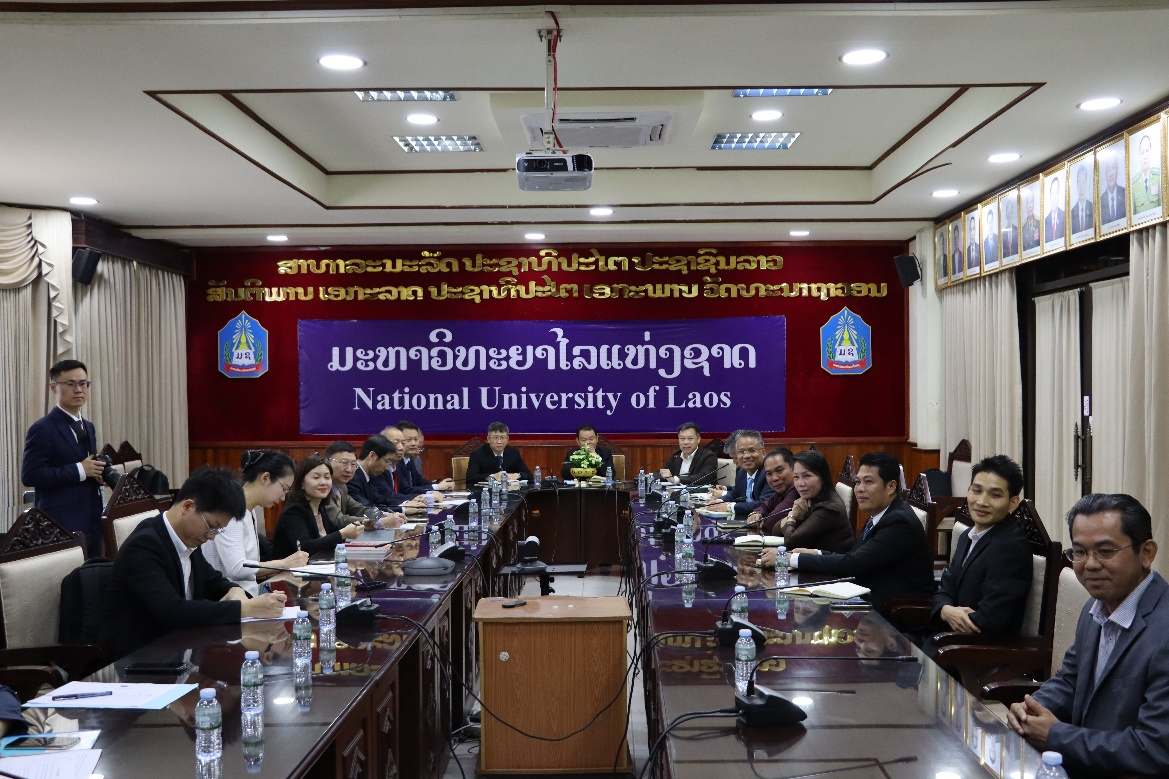
In the afternoon of November 7, the delegation visited the Lao Academy of Social and Economic Sciences (LASES) and met Kongkeo Xaysongkham, member of the Central Committee of the Lao People's Revolutionary Party (LPRP), Party Secretary and President of the LASES, followed by a seminar with the main leaders and representatives of scholars from seven institutes of the Lao Academy of Social and Economic Sciences. Vice President Chen Zhigang introduced the organizational structure and functional positioning of the Academy of Marxism of the Chinese Academy of Social Sciences. Members of the delegation and experts and scholars of the Lao Academy of Social and Economic Sciences had a warm and in-depth exchange of views on issues related to the Chinese path to modernization, system of socialist market economy, and overseas dissemination of Xi Jinping's thought on socialism with Chinese characteristics for a new era.
On November 8, the delegation participated in the 11th International Forum on Socialism organized by the Lao Academy of Social and Economic Sciences. More than 100 experts, scholars, government officials and diplomatic envoys from China, Laos, Vietnam, Cuba and DPRK had warm and fruitful discussions and exchanges of ideas on the theme of “Marxism in the 21st Century.” Kongkeo Xaysongkham, member of the Central Committee of the Lao People’s Revolutionary Party, Party Secretary and President of the Lao Academy of Social and Economic Sciences, Ta Minh Tuan, Vice President of the Vietnamese Academy of Social Sciences, and Chen Zhigang, Vice President of the Academy of Marxism of the Chinese Academy of Social Sciences, delivered speeches at the opening ceremony of the forum.
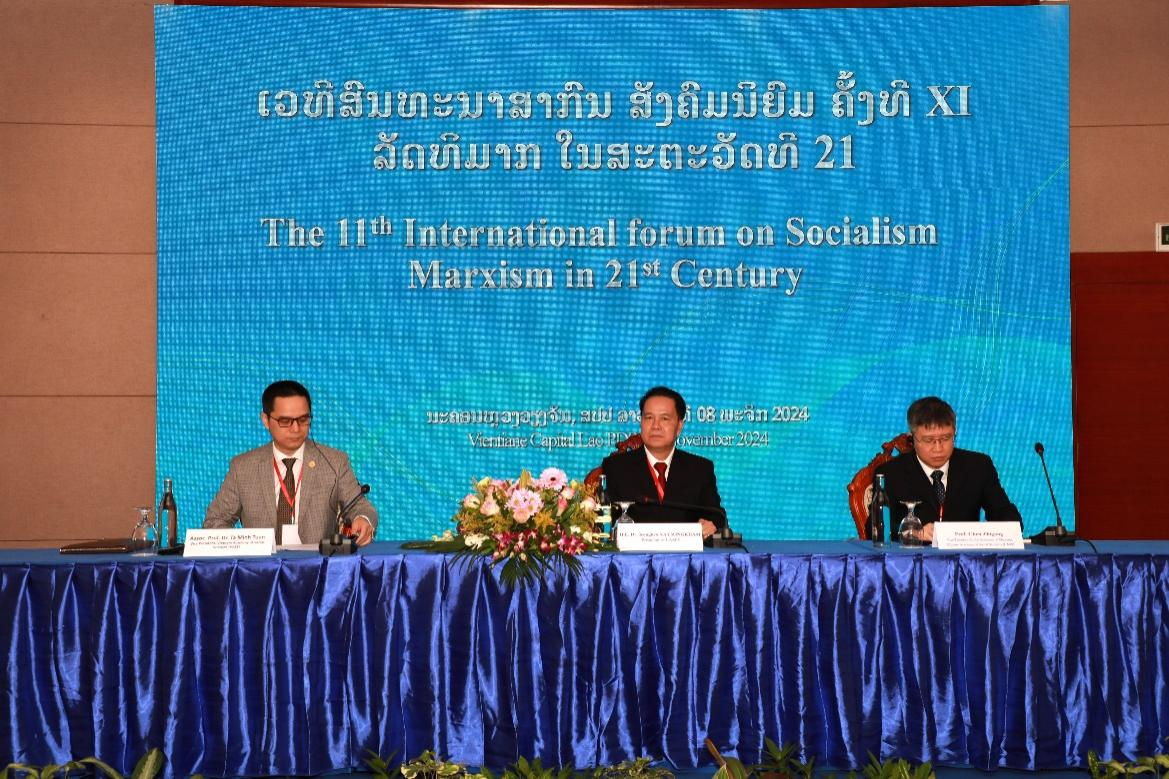
Party Secretary and President of the Lao Academy of Social and Economic Sciences, Kongkeo Xaysongkham, pointed out in his speech that despite the current turbulent and complex situation in the world, the Marxist ruling parties of the five socialist countries—Laos, China, Vietnam, Democratic People's Republic of Korea (DPRK), and Cuba—are still resolutely exploring the paths of socialism with their own national characteristics. The socialist system is superior social system. The topics selected for the seminar are of great theoretical and practical significance in determining the guidelines and policies of the Lao People’s Revolutionary Party (LPRP) and the strategy for economic and social development in Laos. In his speech, Ta Minh Tuan, Vice President of the Vietnamese Academy of Social Sciences, pointed out that the seminar is of outstanding strategic significance in the face of international challenges and opportunities in the new era. It is necessary to deeply understand the ideological value of Marxism and innovative in the ways to apply Marxism in practical actions of socialist modernization according to the national conditions of each country. Chen Zhigang, vice president of the Academy of Marxism of the Chinese Academy of Social Sciences, pointed out in his speech that the International Forum on Socialism has closely followed the pace of the times in terms of the construction and reform in socialist countries, and has engaged in continuous and in-depth theoretical discussions centering on the latest spirit of National Party Congresses of socialist countries, the thoughts of the leaders of these countries, and their theoretical innovations, forming a series of results reflecting the latest theoretical development in the socialist countries. This has greatly enhanced the unity and consensus among the communities of Marxist theories and of social sciences in socialist countries.
Three parallel sessions were held with the respective them of “Theory of Socialist Modernization and Harmonious and Sustainable Development,” “Practice of Socialist Modernization and Harmonious and Sustainable Development,” and “Socialist Cooperation for Harmonious and Sustainable Development.” Presentations were given by researcher Wang Zhongbao on “Marxism and Sustainable Development,” by associate researcher Yang Binbin on “Understanding Xi Jinping’s Original Contribution to Cultural Thought from the Perspective of the ‘Second Combination,’” by associate researcher Xia Yipu on “Whole Process People’s Democracy: Institutional Innovation of China’s Modernization,” by researcher He Qin on “National Characteristics and Common Features of Socialist Modernization,” by associate researcher Chen Yongsheng on “Vigorously Developing New Quality Productive Forces to Promote Economic-Social-Human Harmony and Sustainable Development.”

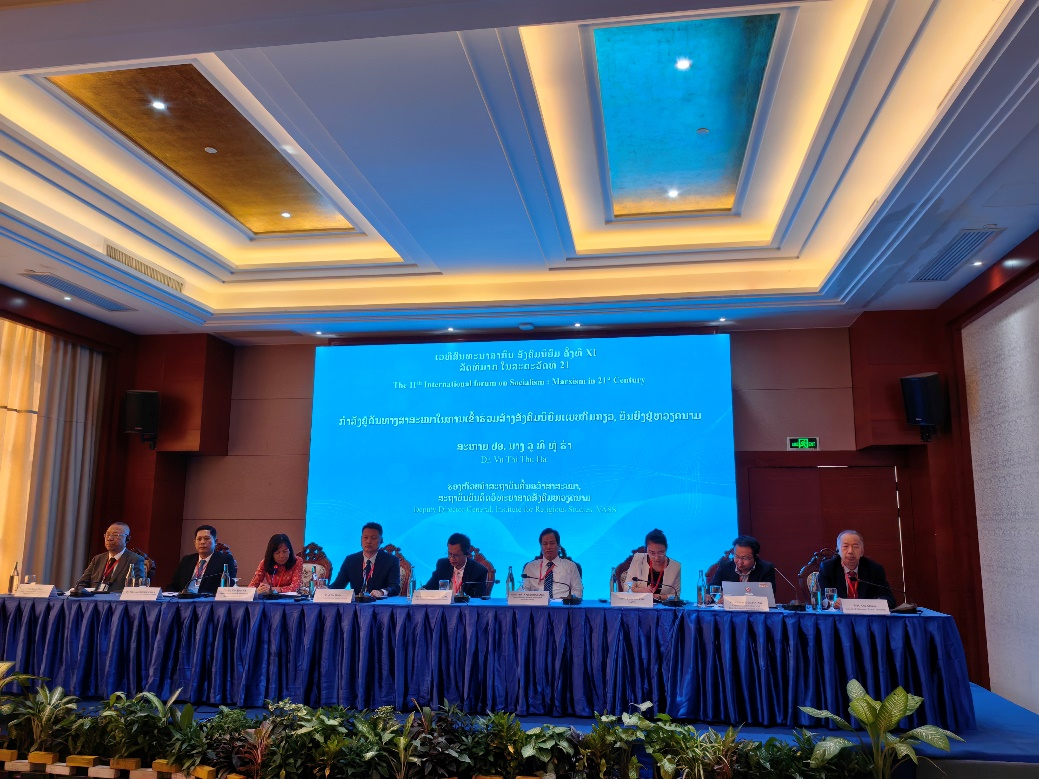
On the afternoon of November 8, the Forum also held a roundtable meeting of the heads of delegations of China, Laos and Vietnam to decide on the theme, time and venue of the next forum. The three sides agreed that the 12th International Forum on Socialism will be held in Vietnam from late October to early November 2025 under the theme of “Driving Force for the Development of Socialism in the New Era.”
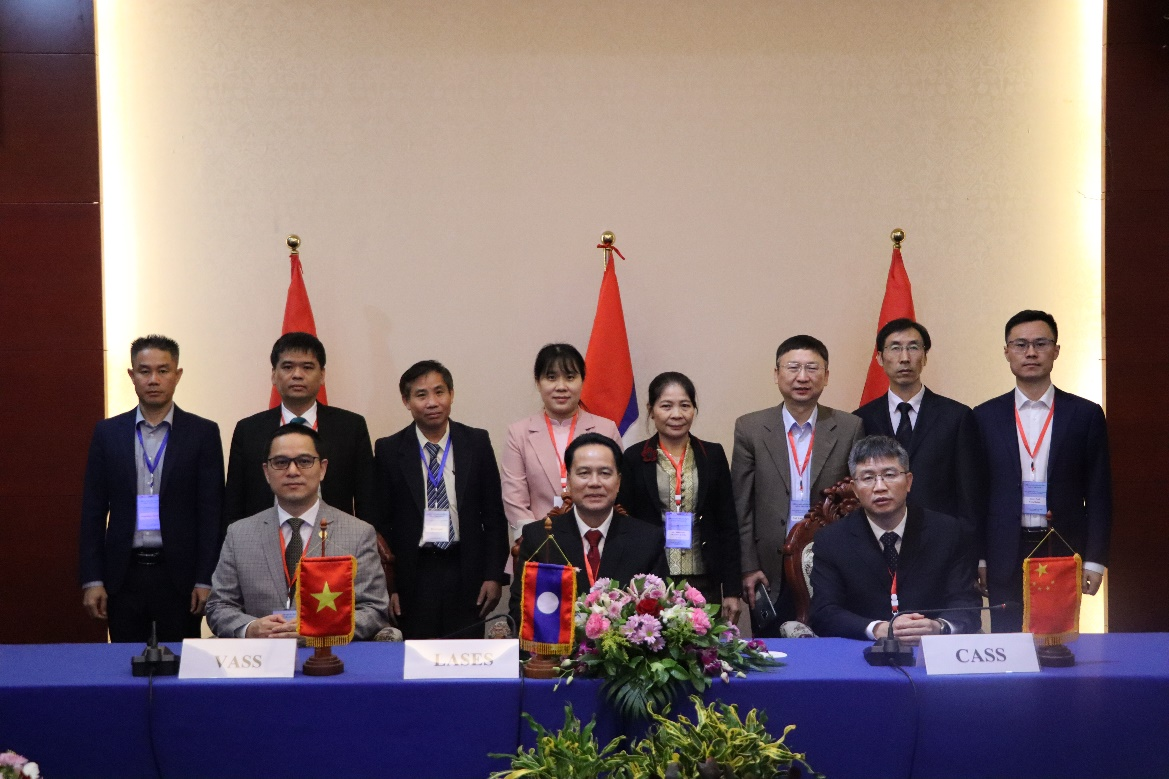
On November 9, accompanied by a team from the Lao Academy of Social and Economic Sciences, the delegation went to Luang Prabang, Laos by the China-Laos Railway for field research. The delegation mainly focused on the operation of the China-Laos Railway and conducted research on the key areas of a community with a shared future for China and Laos, such as China-Laos connectivity, economic and trade exchanges and cultural exchanges.
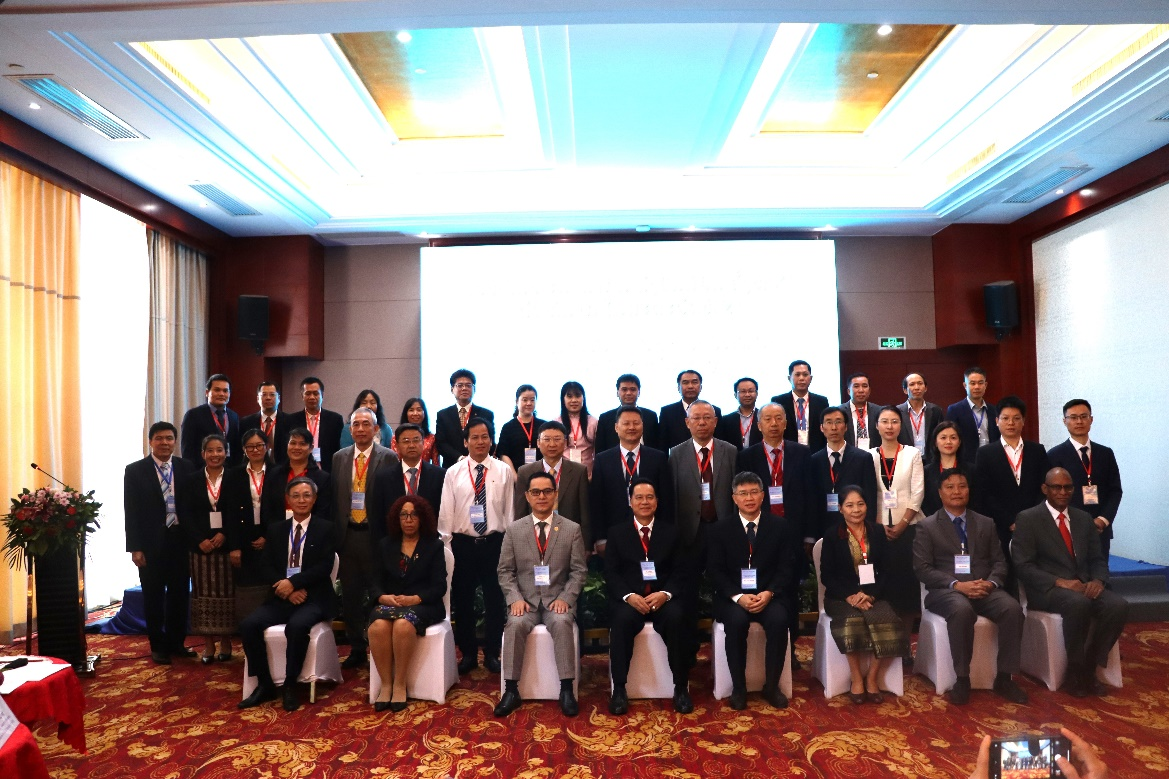
China and Laos share the same roots as friendly socialist neighbors whose futures are linked and whose destinies are shared. This year marks the 15th anniversary of the establishment of a comprehensive strategic partnership between China and Laos, and the community with a shared future for China and Laos is the first agreement on such community signed between China and another socialist country. For a long time, China and Laos have practiced the spirit of a community with a shared future for China and Laos by seeking common development through mutual trust and cooperation, and meeting challenges together with sincere mutual assistance. The delegation’s visit to Laos will further deepen the friendly cooperation between the Chinese Academy of Social Sciences (CASS) and Lao academic institutions such as the Lao Academy of Social and Economic Sciences and the National University of Laos. The two sides have reached a number of consensuses on academic research, journal promotion, talent training, etc. Both sides will remain committed to promoting Chinese-Lao cultural exchanges and contributing wisdom and strength to building a community with a shared future for China and Laos in the new era.
(By Yang Binbin; translated by Liu Zixu)